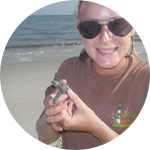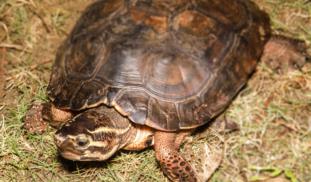Please wait...
About This Project
The Chocoan River Turtle, a freshwater species, has limited populations along the Pacific coast of Colombia and Ecuador and is listed as near threatened and little is known about it. Despite being previously thought of as a freshwater, herbivorous species, it has recently been seen on land feeding on the carrion of a mammal. Biologging tags will be used as a hands-off technique to give insight into the daily activities and nesting habits of this interesting turtle on Isla Palma, Colombia.
More Lab Notes From This Project

Browse Other Projects on Experiment
Related Projects
Out for blood: Hemoparasites in white-tailed deer from the Shenandoah Valley in Northern Virginia
Our research question centers about the prevalence and diversity of hemoparasites that infect ungulate poplulations...
Using eDNA to examine protected California species in streams at Hastings Reserve
Hastings Reserve is home to three streams that provide critical habitat for sensitive native species. Through...
How do polar bears stay healthy on the world's worst diet?
Polar bears survive almost entirely on seal fat. Yet unlike humans who eat high-fat diets, polar bears never...




